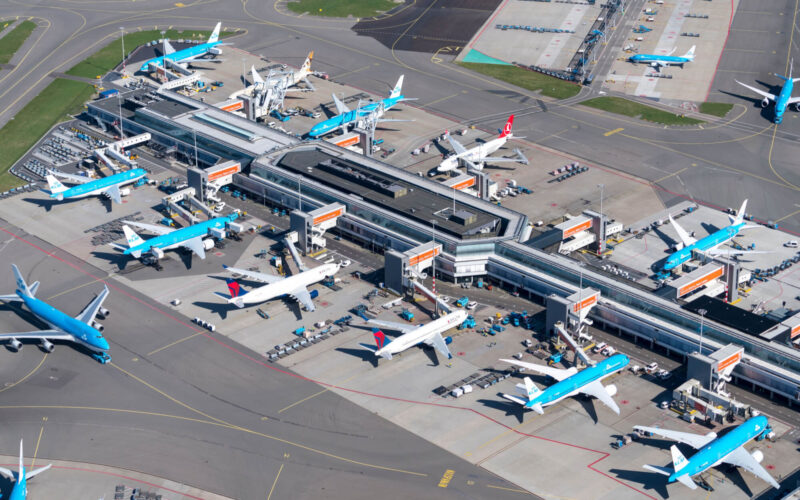There is no easy fix for Europe’s travel nightmares this summer, pilots have warned. They also called on the European aviation safety regulator to take action to help keep passengers safe amid growing pressure on staff.
“As much as I would like to say how we can solve and change it, the summer chaos is here, and it is not going to go away. We are not going to solve it this year,” Captain Tanja Harter, Technical Affairs Director at the European Cockpit Association (ECA), commented during an online media briefing on July 12, 2022.
While travel demand has bounced back after two years of the COVID-19 pandemic, the aviation industry has been unable to recruit back enough staff fast enough, whether on the ground or in the air.
Across Europe, airports have seen long lines for security, a lack of ground staff has led to delays and baggage being left behind. Airlines have been canceling flights and airports are putting caps on the numbers of passengers they can handle, with London’s Heathrow asking airlines to stop selling tickets.
Fatigue is a key issue for crews, whose rosters are being planned to maximum limits with no buffers, Harter said. The issue of fatigue was raised recently when the head of low-cost carrier Wizz Air said crews needed to carry on working even if they were fatigued.
In addition, they are facing extra workload through having to deal with delays and help out newly hired airport staff who lack experience. Harter said there were examples of fire brigade staff being asked to help with loading bags. While they are trained in firefighting, they are not trained in loading so that puts extra pressure on the captain of a flight to make sure loading is done correctly.
Captain Paul Reuter, Professional Affairs Director at ECA, cited a recent example where newly hired staff were unable to remove a jetbridge until a more experienced colleague arrived, causing a flight to be delayed.
“We have four flights a day, but sometimes each one feels like a whole day. Things are piling up,” Reuter said.
Long time coming
The travel disruption currently on show is a sign of problems that have been building in aviation before the pandemic, ECA said.
“Canceling flights is an option, but it’s putting a plaster on a deeper problem,” ECA Secretary General Philip von Schöppenthau said. The current lack of staff is not just down to the pandemic but years of cost-cutting and mismanagement, which has made people hesitant to join the industry or come back, he said.
ECA has therefore called on the European Union Aviation Safety Agency (EASA) to issue a safety information bulletin (SIB) to acknowledge the problems and show it is taking the disruption seriously.
“We need all stakeholders in the aviation industry to take a step back and acknowledge that we have a problem that is very deep in the system,” Reuter said. He said ECA was not happy with the current “nonchalance” being shown by regulators.
“What we have this time is a deep systemic issue,” he said, noting that similar problems had been seen in previous summers, but not to such an extent. “This time this whole system is so overstretched with lack of staff and lack of qualified staff in every position from ground to cabin crew to pilots to ATC to gate staff.”
ECA has also published a safe flying checklist to encourage pilots to take it safely, even when issues are piling up.
Pilots are not delay-managers. Pilots are not a ‘buffer’ for delays, cancelled flights, bad rosters & failed operations planning & management. Pilots are safety professionals.
— European Pilots (@eu_cockpit) June 10, 2022
Our advice to pilots facing overstretched ultra-busy summer rosters: do not fly fatigued! pic.twitter.com/0I40BD8xDc
Harter said ECA wanted to remind pilots that their priority was not making up time lost on delays, but to ensure safety, have a back-up plan and prepare for the unexpected, citing the idiom: “Haste makes waste”.
“These are our core tasks and it’s very easy to forget them when you’re trying to make up for other things. We really need sometimes to take a step back and concentrate on the pure tasks of the operation of the aircraft.”
“It is a chaotic summer, it will remain chaotic, but we don’t want it to be a tragic one,” Harter said.

